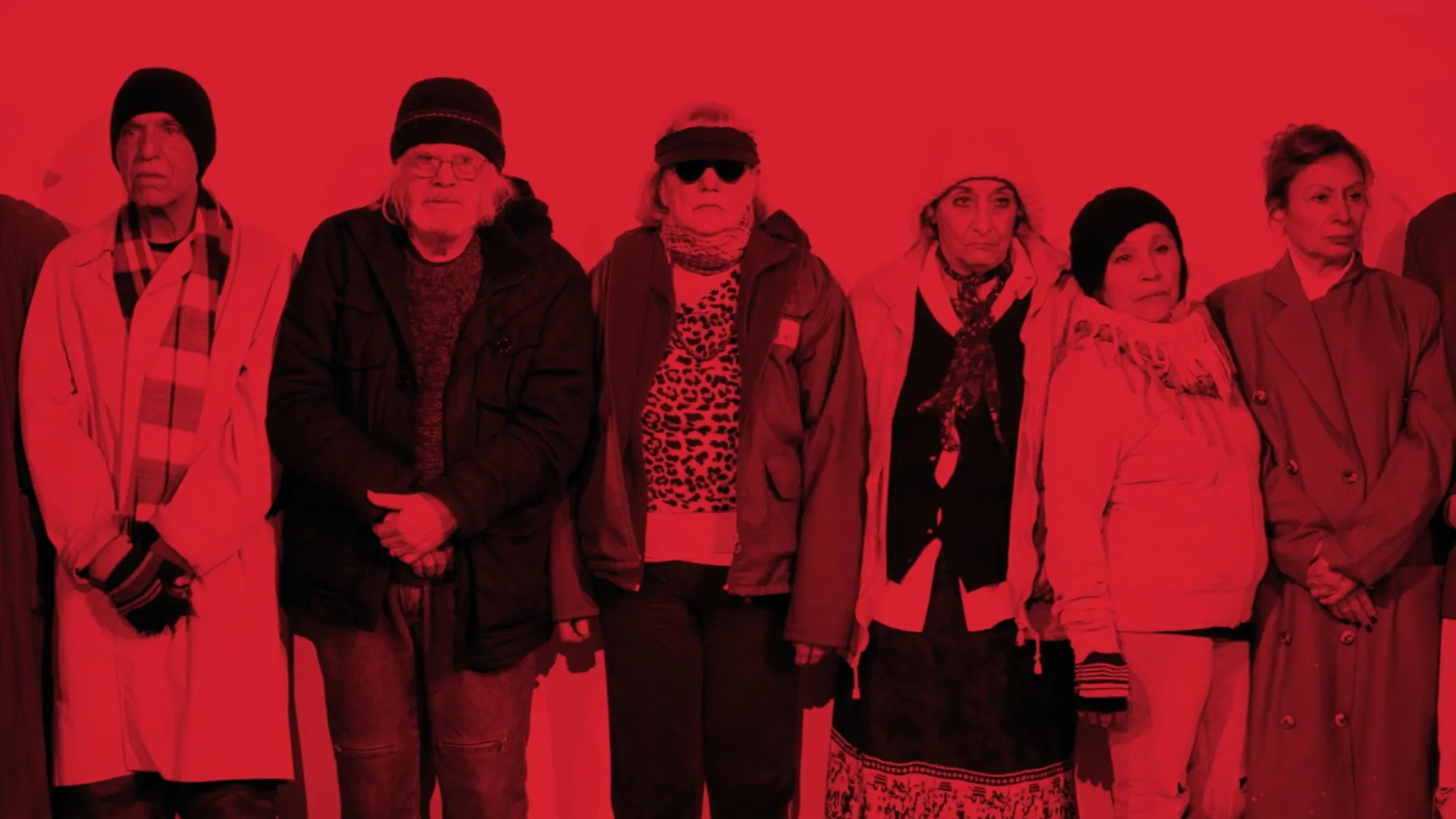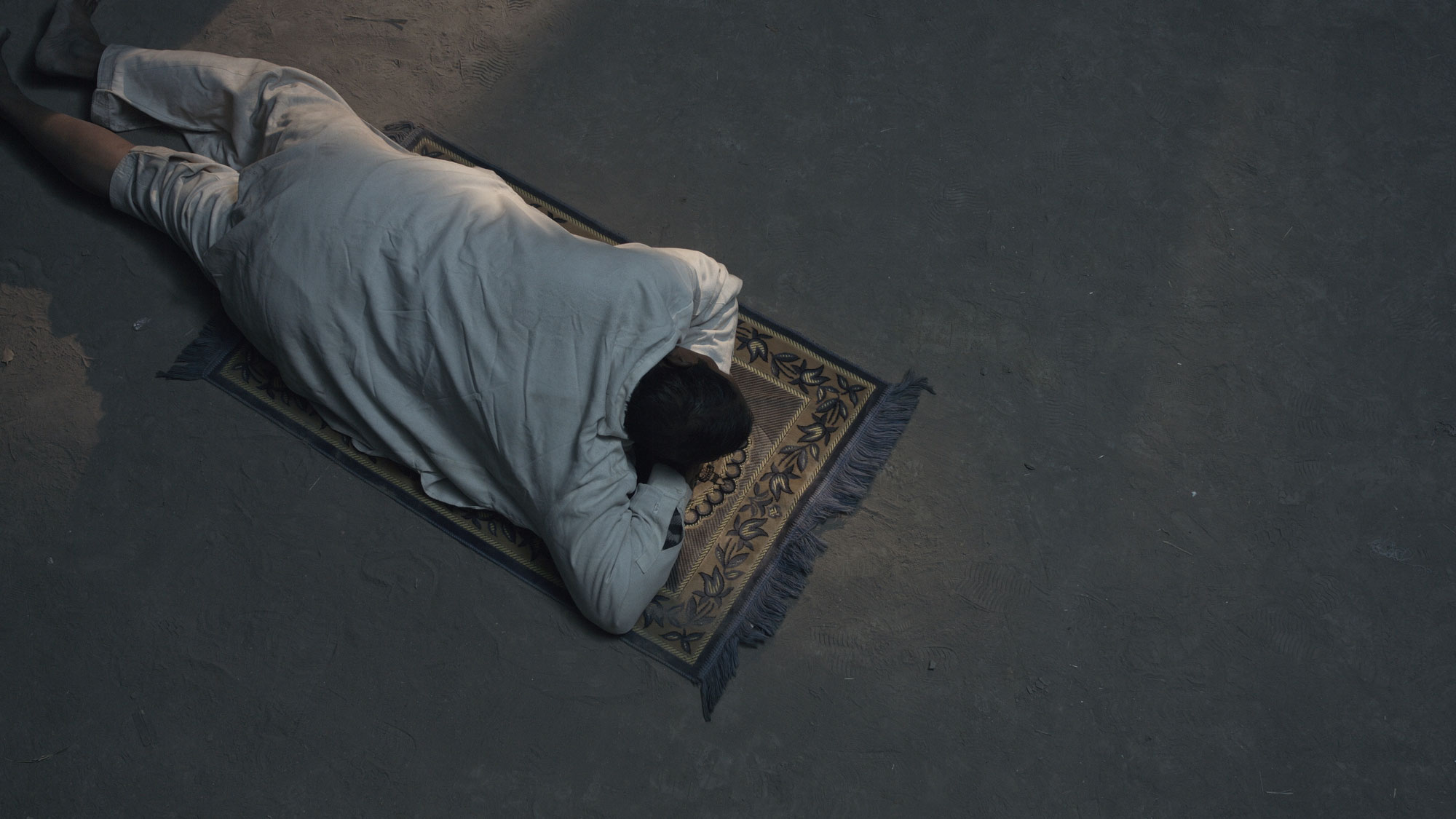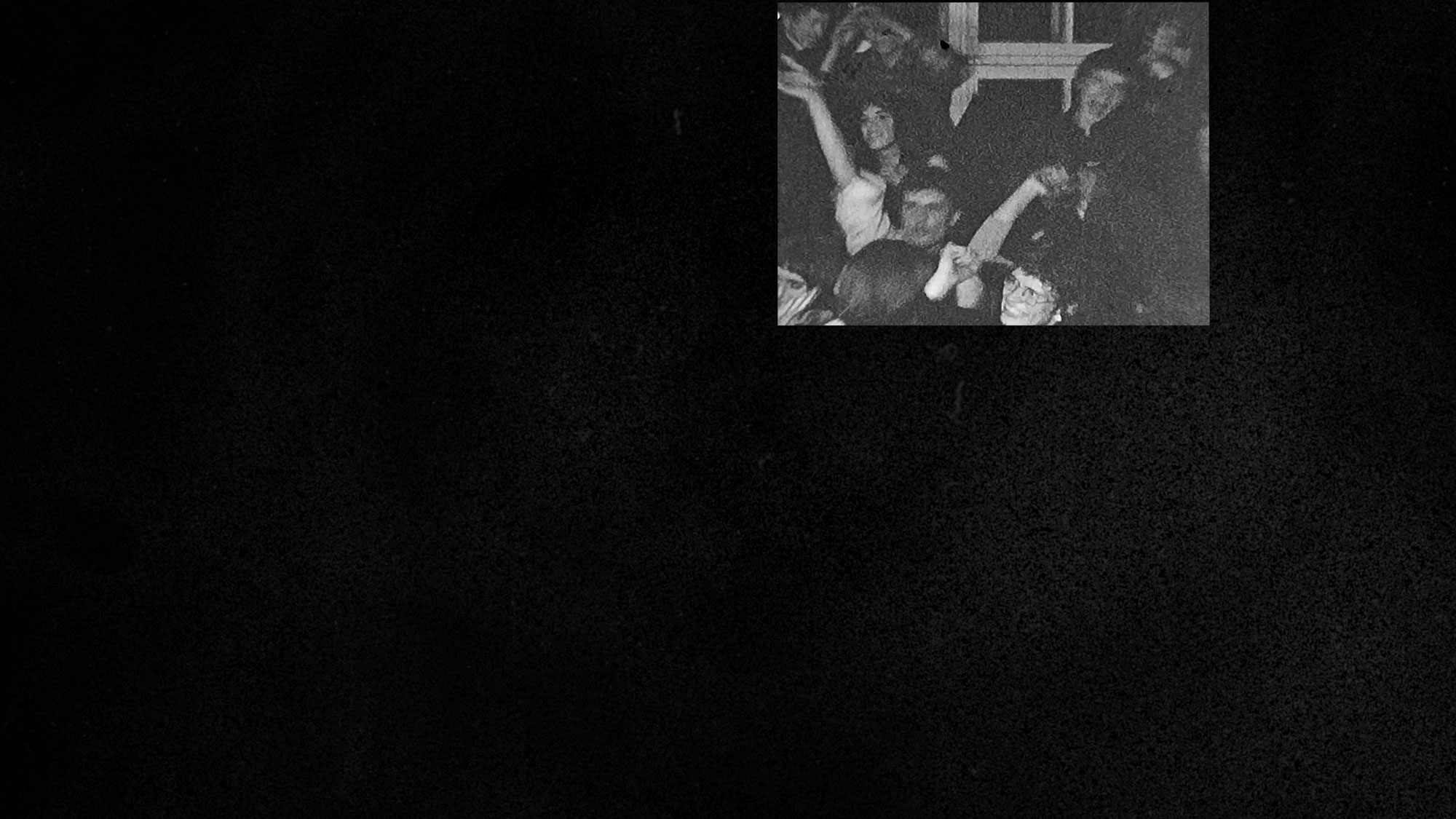
Short Shadows: Second Time Around
The final Short Shadows program of the season presents three moving-image works with narrative structures that orbit around performances from the past in order to make hidden histories visible.
Deimantas Narkevičius’s Stains and Scratches focuses on found footage of an underground performance of Jesus Christ Superstar in Vilnius, Lithuania during the 1970s. The show was performed by students at the Vilnius Academy of Art from a score re-written by ear from an unsanctioned double LP. Narkevičius further dislocates the documentation by layering and doubling the film onto a scratched black celluloid background, the soft-montage composition highlighted and rendered sculptural in Stereoscopic 3D.
One of a series of films produced during Basir Mahmood’s research into “Lollywood” (Pakistan’s center for cinema production in Lahore) history, the script for all voices are mine was derived from recollections of actors, filmmakers, and writers. The film is structured around reenactments of their scenes from previous films and is performed without dialogue, a dramaturgical approach that produces a film that is at once unfamiliar and recognizable. This collage technique produces an uncanny sense of a film that we have all seen, albeit one that is rehearsed only in memory.
Spanish artist Dora Garcia’s first feature, Segunda Vez (Second Time Around), pivots around avant-garde theorist Oscar Masotta’s ideas concerning psychoanalysis, politics, and art in 1960s Buenos Aires. Structured by a series of interconnected re-enactments, re-stagings, and social experiments, the film shifts between documentary-style interpretations of past “happenings” and the fictional psychodrama of novelist Julio Cortázar. Segunda Vez weaves a complex narrative within the climate of surveillance and disappearances in Argentina, producing an acute sense of paranoia for what might happen the second time around.
Whether anchored in real or fictional scenarios, each artwork presented in the Short Shadows series stretches beyond a singular moment or place to foreground the political importance of unexpected historical interconnections. Mostly produced within the last decade, the artists’ films, videos, poetry, and performances presented here shine a light on cultural and historical events that may otherwise remain in shadow.
Program
- all voices are mine (2018)
- Basir Mahmood
- 4K digital video
- Courtesy the artist
- Stains and Scratches (2018)
- Deimantas Narkevičius
- 3D digital video
- Courtesy the artist and LUX
- Segunda Vez (2018)
- Dora Garcia
- 4K digital video
- Courtesy the artist and August Orts
Main Image: Dora Garcia, Segunda Vez (2018). Courtesy the artist and Auguste Orts.

Basir Mahmood, all voices are mine (2018). Courtesy the artist.

Deimantas Narkevičius, Stains and Scratches (2018), Courtesy the artist and LUX, London.
Dates + Tickets
Season
EMPAC Spring 2019 presentations, residencies, and commissions are made possible by Rensselaer Polytechnic Institute, with continuous support from the New York State Council for the Arts with the support of Governor Andrew M. Cuomo and the New York State Legislature; the Australian Government through the Australia Council for the Arts; and the Jaffe Fund for Experimental Media and Performing Arts. Additional project support by the National Endowment for the Arts; the New England Foundation for the Arts’ National Dance Project, with funding from the Andrew W. Mellon Foundation; and the Center for Curatorial Studies at Bard College.
